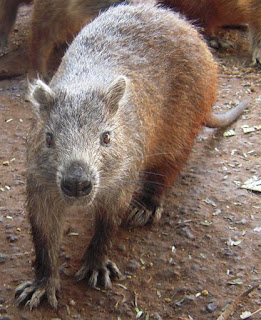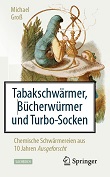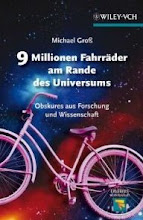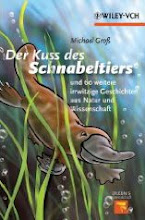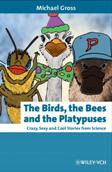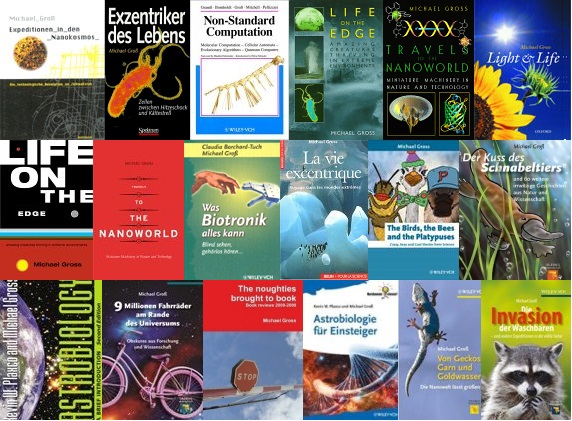Today's selection of
science news. Links are normally to press releases on EurekAlert (at the bottom end I may also add a couple of newspaper stories). I include quotes from the summary (using quotation marks) in cases where the title alone doesn't reveal what the story is about. My own thoughts appear without quotation marks, if I have any.
earth
Sources and sinks
"For the entire history of our species, humans have lived on a planet capped by a chunk of ice at each pole. But Earth has been ice-free for about 75 percent of the time since complex life first appeared. This variation in background climate, between partly glaciated and ice-free, has puzzled geologists for decades."
nanoworld
From mirror-image biology to enhanced therapeutic proteins
"Scientists from the German Cancer Research Center (DKFZ) have succeeded in reconstructing biomolecules in their mirror-image form. The researchers' goal is to create a mirror-image artificial protein synthesis system. Their aim is to produce mirror-image therapeutic proteins, such as antibodies, which would be protected from biological breakdown in the body and do not provoke any immune response."
I don't believe that therapeutic proteins made of D amino acids would not trigger an immune response. They would be recognised by different antibodies compared to the L version, but still be marked as foreign.
Can an antifreeze protein also promote ice formation?
"Antifreeze is life's means of surviving in cold winters: Natural antifreeze proteins help fish, insects, plants and even bacteria live through low temperatures that should turn their liquid parts to deadly shards of ice. Strangely enough, in very cold conditions, the same proteins can also promote the growth of ice crystals."
I'm not terribly surpised by this as we've known about ice nucleation proteins for decades, and the two functions are similar in a way.
evolution
Researchers uncover new clues to surviving extinction
ecology
Narwhals spend at least half time diving for food, can fast for several days after meal
Sea otters' tool use leaves behind distinctive archaeological evidence

Wild sea otter at Bennett Slough Culverts opening mussels using emergent anvil stone.
Credit: Monterey Bay Aquarium, Jessica Fujii. Haslam et al. 2019. Wild sea otter mussel pounding leaves archaeological traces. Scientific Reports.
behaviour
Wild African ape reactions to novel camera traps
They'll set up their own instagram accounts in no time, but - see also the following:
New study shows human impact erodes chimpanzee behavioral diversity
Wolves lead, dogs follow -- And both cooperate with humans
food and drink
Scientists crack genome of superfood seaweed, ito-mozuku
Looks revolting to me, so I'm not sharing the photo that came with the PR.
humans
Ancient DNA research shines spotlight on Iberia
There's another PR on the same Science paper, also discussing a Curr Biol paper on Iberian genomes:
Unique diversity of the genetic history of the Iberian Peninsula revealed by dual studies
Poor pitch singing could be a matter of the tune in your head
---------------
From the news media:
Rebecca Solnit on the climate strike happening today.














